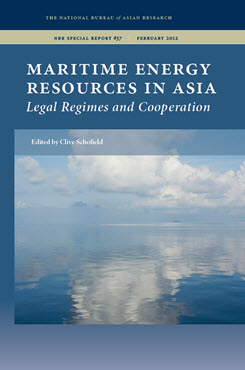The Regime of Islands under UNCLOS
Implications for the South China Sea
This essay explores the contentious issue of islands and their associated claims to maritime jurisdiction in international law with particular reference to the islands/rocks in East and Southeast Asia and especially the disputed islands of the South China Sea.
EXECUTIVE SUMMARY
This essay explores the contentious issue of islands and their associated claims to maritime jurisdiction in international law with particular reference to the islands/rocks in East and Southeast Asia and especially the disputed islands of the South China Sea.
MAIN ARGUMENT
Islands remain a critical factor in maritime and territorial disputes in East and Southeast Asia, both with respect to sovereignty disputes over island territories and with regard to their capacity to generate maritime jurisdictional claims for the delimitation of maritime boundaries. The regime of islands, as provided in Article 121 of the UN Convention on the Law of the Sea (UNCLOS), remains unclear, and no authoritative ruling or consensus on its interpretation has yet emerged. Recent developments, however, have clarified the positions of some of the parties to the South China Sea islands disputes on this issue. There is also a trend toward reducing the effect of sparsely inhabited or uninhabited islands in the generation of maritime claims and the delimitation of maritime boundaries. The latter development suggests that disputed islands, even if deemed capable of generating extended claims to maritime jurisdiction, would have only a limited capacity to generate such claims compared with the surrounding mainland and main island territories. Acceptance of this view by, for example, the South China Sea claimant states would result in considerable narrowing of the area of overlapping maritime claims, thus significantly simplifying the dispute.
POLICY IMPLICATIONS
- An authoritative interpretation of Article 121 of UNCLOS, though highly desirable, is presently lacking, and both state practice and international jurisprudence are of only limited utility on this issue.
- It is increasingly clear that the parties to disputes over East and Southeast Asian islands take distinctly differing views on the capacity of certain features to generate broad maritime claims. This remains a key obstacle to the achievement of a peaceful settlement of regional maritime and territorial disputes.
- The trend toward minimizing the role of small, remote islands in the generation of claims to maritime space and the delimitation of maritime boundaries is encouraging and suggests approaches to overcoming the island/rock conundrum in the South China Sea. This should help moderate or reduce the scope of overlapping maritime claims and subsequently “defuse the bomb” of potential conflict over disputed islands in the region.


